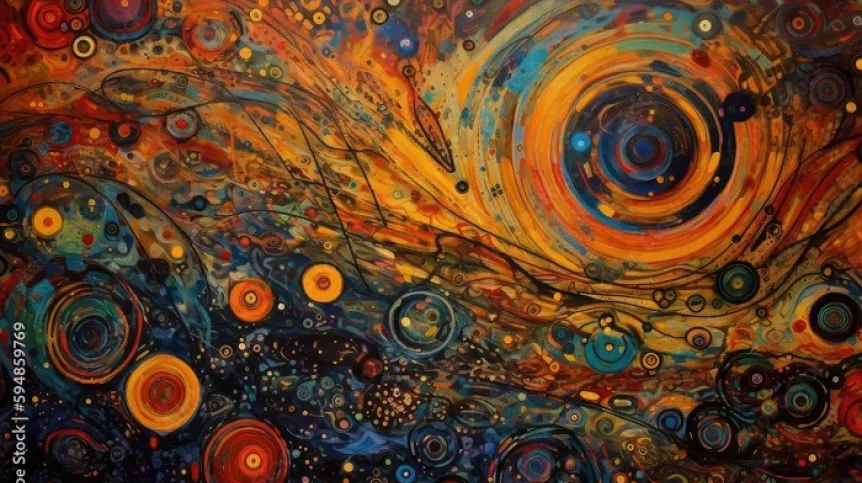
Research on dark energy and matter in space is the goal of the European Space Agency's recently launched Euclid mission. Polish companies took part in the preparations for the mission.
The Euclid telescope was launched on a Falcon 9 rocket from the spaceport at Cape Canaveral, Florida.
Soon it will be in the second Lagrange Point (where the James Webb Space Telescope has been since January 2022). From there, it will dynamically map the evolution of the Universe to help understand dark matter and dark energy.
According to the Polish Space Agency (POLSA), the following Polish companies took part in the preparation of components and systems for the mission: Astri Polska, GMV Polska, SENER Polska and SYDERAL Polska (currently AROBS Polska); the value of contracts for Polish entities exceeded EUR 3.24 million.
The main goal of the mission, named after the Greek mathematician Euclid, is to explore the dark part of the universe, i.e. dark energy and dark matter. Ordinary matter is thought to make up only 5 percent of the mass and energy of the Universe; 25 percent is mysterious dark matter, and 70 percent - dark energy.
Dark energy drives the expansion of the cosmos, and dark matter determines the shape and evolution of matter-containing structures such as galaxies and galaxy clusters. Without dark energy, it would be impossible to explain why the Universe is expanding faster and faster. Without it, gravity should slow down the expansion of the cosmos.
Ordinary matter, on its own, would not produce enough gravity for galaxies and other large cosmic structures to form. It is estimated that in a typical galaxy, dark matter weighs on average 10 times more than visible matter. The existence and influence of dark matter is mostly revealed by its gravitational influence on ordinary matter. However, despite such a huge impact of dark energy and matter on the Universe, scientists basically do not know what they are.
Euclid will map billions of galaxies within 10 billion light years and show how they have evolved over the past 10 billion years. Based on the data it provides, scientists intend to infer various properties of dark energy and matter. The acquired knowledge is also expected to help find answers to questions about the nature of gravity.
The 4.7 x 3.7 m spacecraft carries a 1.2-meter telescope and two sensors - one operating in visible light and the other operating in infrared.
The huge area and time of evolution of the Universe to be recorded are not the only novelties. The images of galaxies obtained by the probe will be at least four times clearer than those provided by ground-based observatories. The infrared camera will also study the chemical properties of stars and galaxies. The instrument will operate at the second Lagrange Point, in the Sun-Earth system. This point is 1.5 million kilometres further from the Sun than Earth and orbits the star together with our planet. This will keep the instrument at a constant distance from Earth.
The mission is scheduled for six years, with the possibility of extension. The maximum operating time of the telescope will be largely determined by the supply of gas used in the propulsion system.
According to POLSA, SENER Polska supplied an important element of the probe - the ADPM (Antenna Deployment and Pointing Mechanism), responsible for deploying and directing the antenna used by the probe to communicate with the Earth; SENER's contribution also includes a set of 13 devices for ground support of the construction of the satellite (including mechanical ground support devices MGSE - Mechanical Ground Segment Equipment, and devices for precise satellite movement in many planes, transport to test chambers and loading to the cargo hold of the carrier rocket ).
GMV Polska was responsible for developing the dedicated software Euclid Survey Independent Validation Tool - ESTIVAL; this tool is used to validate the observation plan of the telescope. GMV also provided an analysis of the Mission Operations Concept Documents, its limitations, and a sky survey scenario validation report. The company's tasks also included developing a definition of the functional verification of the on-board software system.
Astri Polska contributed to the area of the central data management system - it supplied components for the memory management unit and equipment for the ground electrical support segment.
SYDERAL Polska (currently AROBS Polska) supplied the antenna deployment system and electronics for the steering mechanism. Advanced electronics and FPGA code are responsible for precise control of the mechanism in order to maintain communication between the satellite and the ground station. The role of SYDERAL Polska was to develop and verify the FPGA code for some modules responsible for controlling the stepper motors and to prepare the test software. These components will, among other things, enable very precise positioning of the antenna when establishing contact between the Euclid probe and ground stations. (PAP)
Marek Matacz
mat/ bar/ kap/
tr. RL













